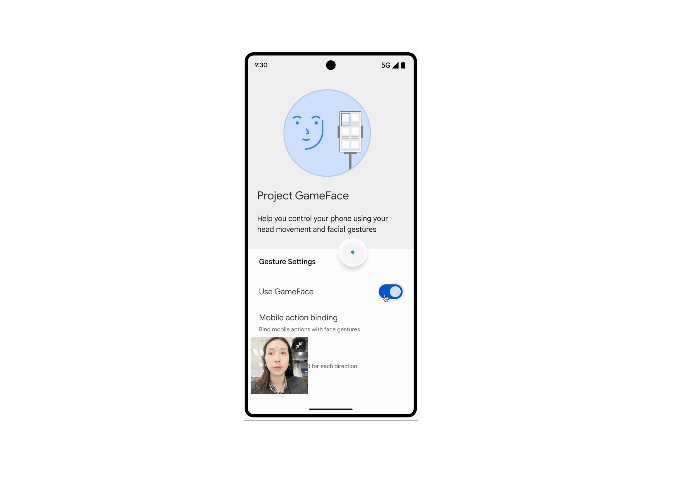Google's Project Gameface is now available for developers to take advantage of, and it wants to arrive in Android apps so that users can control things with facial expressions.
This new accessibility feature was introduced by Google in last year's I/O 2023, but it is now shared with Android, which will allow smartphones to enjoy the hands-free experience.
Through this, there are more ways for users to control their devices and Android apps to do their bidding without touch and other peripherals.
Project Gameface is Now on Android, Announced via I/O 2024

A new blog post by Google expands on its I/O 2024 announcement about Project Gameface coming to smartphones, particularly as a way to control Android apps in the future.
In this announcement, Google said it made the technology open-source for Android app developers to apply to their experiences via one's face to control the cursor and other actions.
This was initially introduced last year as a hands-free gaming mouse. It is based on Google MediaPipe's Face Landmarks Detection API to control the cursor.
From the desktop, Project Gameface will soon be available on mobile, allowing developers to use it when they build their app and integrate a new way to control its functions.
Android Apps Given Access to Project Gameface Controls
It was initially inspired by Lance Carr, a quadriplegic video game streamer who previously resorted to non-touch peripherals to control and enjoy gaming in his own way.
Project Gameface's transition to mobile will give more impaired users a chance to do more with their device's Android apps for developers who will adopt this, with further user-friendly developments and customization options coming.
Google's Accessibility Feature Developments
The smartphone and today's tech should be for everyone, and this means no people will get left behind by the rapid development of technology, with Google creating new experiences for everyone.
In previous Maps, Search, and Assistant features, Google delivered new accessibility features like stair-free routes to follow, Assistant Routine, Lens getting auditory feedback, and more.
Last year's new features also included an improved experience for Google Slides users who are blind, offering improved controls and accessibility via a new extension.
Through the A11yBoard, this browser extension and mobile app improve access for impaired users with new dynamic tools that offer tangible features, gesture recognition, audio, speech input, and more.
Technology has evolved from humongous devices to pocket-friendly and portable ones. Still, accessibility is only catching up in today's age to accommodate the experience for the other users that need it.
Project Gameface expands more of the initially desktop-based experience for Android, using facial expressions to control the device's apps that require no other action from a user.
Related Article : Google Project Gameface Adds Facial Control Capabilities: Control the Game with Blinks, Smiles, Etc.

![Apple Watch Series 10 [GPS 42mm]](https://d.techtimes.com/en/full/453899/apple-watch-series-10-gps-42mm.jpg?w=184&h=103&f=9fb3c2ea2db928c663d1d2eadbcb3e52)



